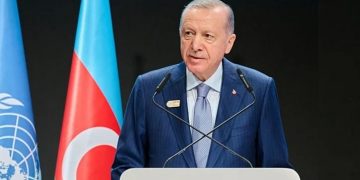Article by Mukhammed Usieinov
Successful operations on the military and diplomatic fronts in Syria, Libya, the Eastern Mediterranean, and more recently, in Karabakh has exhibited that Turkey is major regional power.
In the coming future, Turkey is expected to play an important role in security and stability of the region.
Will active foreign policy of Turkey play the same role in the Balkans, where tension grows every day and old issues return to the agenda?
Balkan ghosts. Bosnia – the old pain of Europe
25 years ago, the Dayton Agreements ended the war on the territory of the allied Yugoslavia and became the main reason for the establishment of modern Bosnia, the administrative and state system. With this agreement, conflict was simply frozen.
Bosniaks, Croats and Serbs after 25 years still do not agree with the existing status quo, which, on the one hand, squeezed the Bosniaks into a serious framework, on the other hand, gave preferences to Serbs and Croats, who, despite the presence of national states, still , declare the revision of the Dayton Treaty and granting even broader rights to the latter in Bosnia.
This tendency has repeatedly proved its inconsistency. The Republika Srpska and the Croatian entity, despite the differences in their views on the future of the country, still have a similarity in finally squeezing the Bosnians (Bosnian Muslims) into the framework and depriving them of any right to their ancestral lands.
The source of the polarization of ethnic communities in Bosnia is still the same Daytona guarantor countries that tend to support one of the two sides – the Serbs and Croats. However, the apparent disregard for the rights of the prevailing Bosnian community is nothing more than a deliberate desire to create an artificial conflict in this small region.
In this vein, the role of Turkey is undoubtedly increasing. But what is it caused by and why without its involvement, peace and stability in the Balkans will remain only a dream?
Why Turkey?
Over the past 10 years, Turkey has been actively pursuing foreign policy activities in a number of important areas. The most successful Turkish diplomacy in the post-Ottoman region: Iraq, Syria, Libya, the Mediterranean, Karabakh.
Turkey’s inclusiveness on the world stage and in resolving regional conflicts lies in two important aspects:
1. Full adherence to international law, while defending their national interests.
2. A complete understanding of the “genetics” of the region, which for many centuries was an integral part of the Ottoman Empire.
It is the adherence to these two aspects that makes Turkey the main stabilizing factor in the region. Despite the fact that 25 years ago among the guarantor countries in Dayton, Turkey was not represented, today neither the EU nor the United States will be able to resolve the new and growing conflicts in the Western Balkans.
What will be the “Turkish mission”?
The only way out for the former guarantor countries in a new conflict or in a new repartition of Bosnia will be the full inclusion of Turkey in this process.
This is due to a number of factors that the United States or European countries do not have in their policy in the Balkans:
1. Active balancing between the opposing sides. The principle of Turkish politics is to fully integrate countries in the region and build relationships based on mutually beneficial conditions.
In recent years, it was the rapprochement between Serbia and Turkey in the trade and economic sector that served to resolve the above ethnic conflicts in neighboring Bosnia.
2. Close connection with each of the communities in Bosnia based on a common history.
Still, the decisive factor in resolving old conflicts and, possibly, even revising the borders will be precisely the readiness of the main beneficiaries to understand the dominant role of Turkey, interaction with which will provide a guarantee of security not only for the Balkans, but for Europe as a whole.













